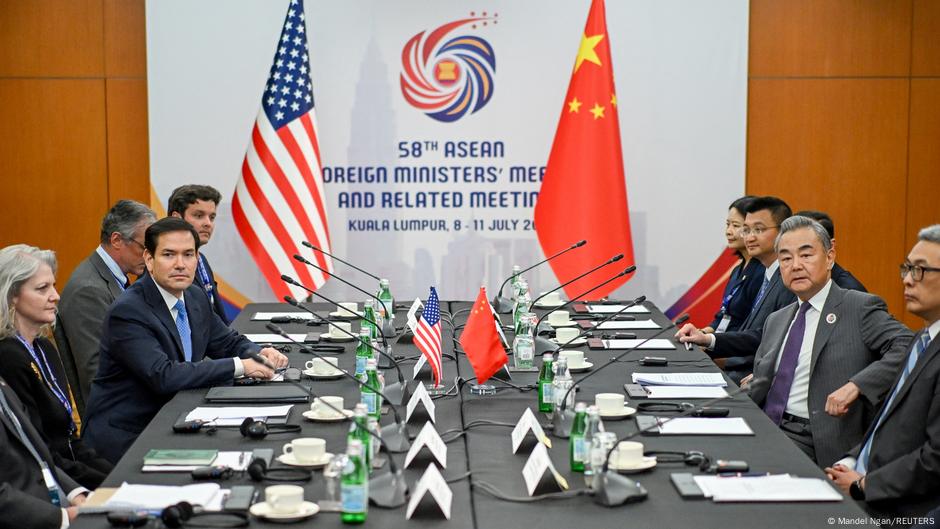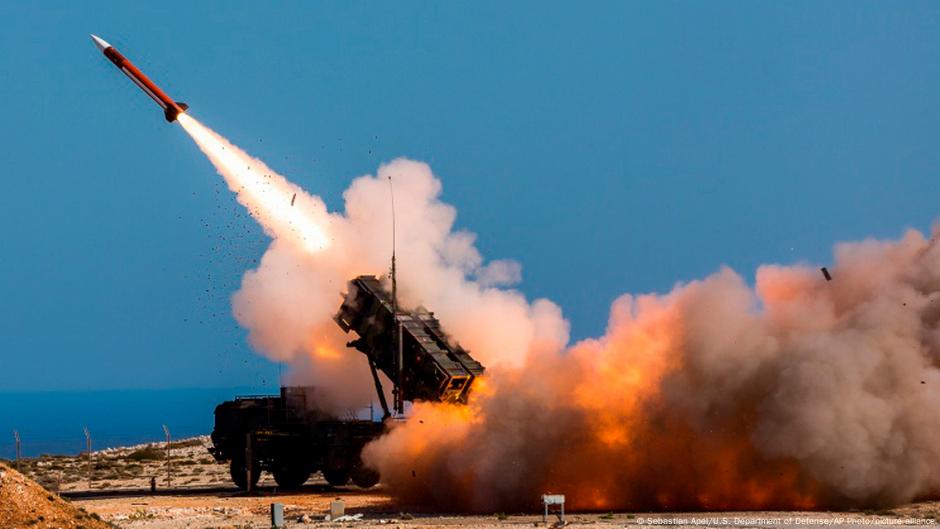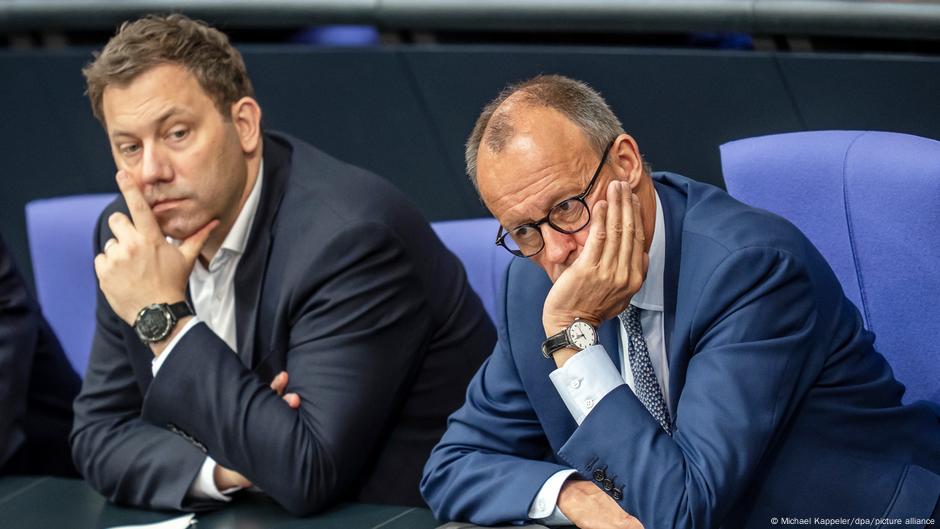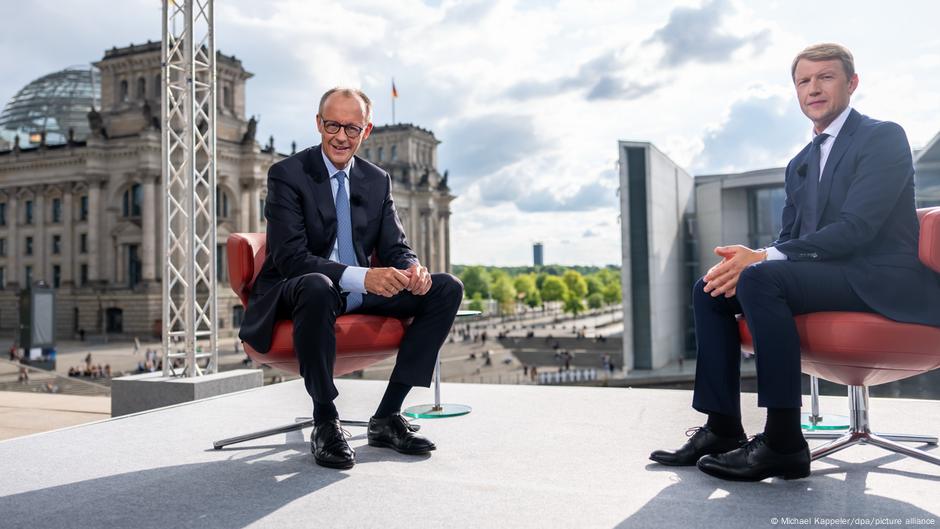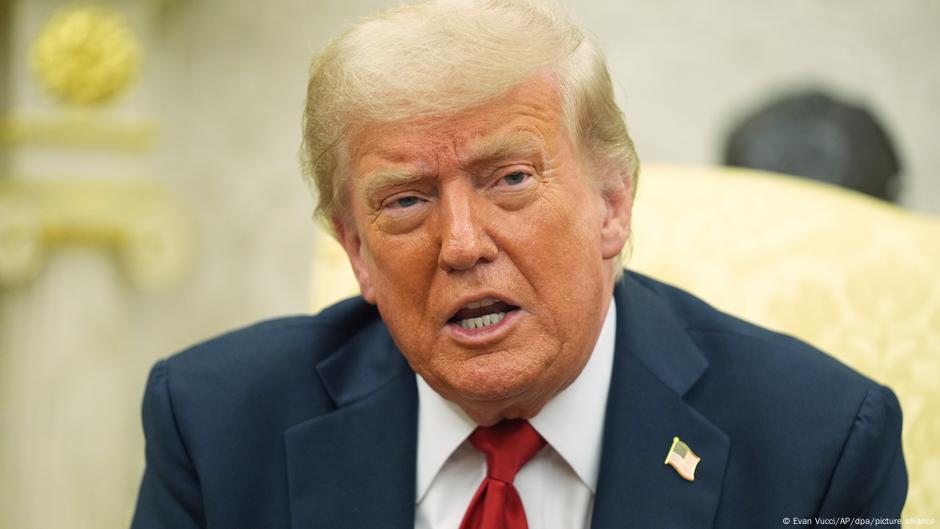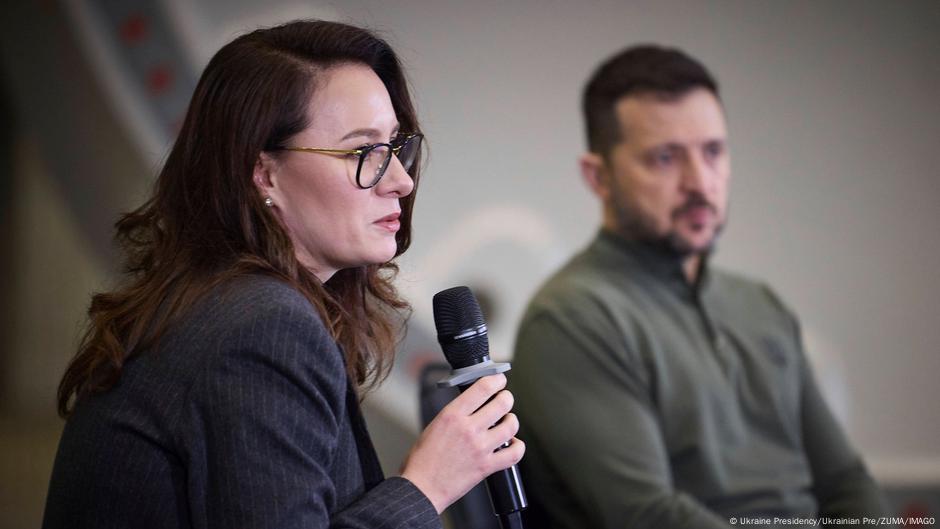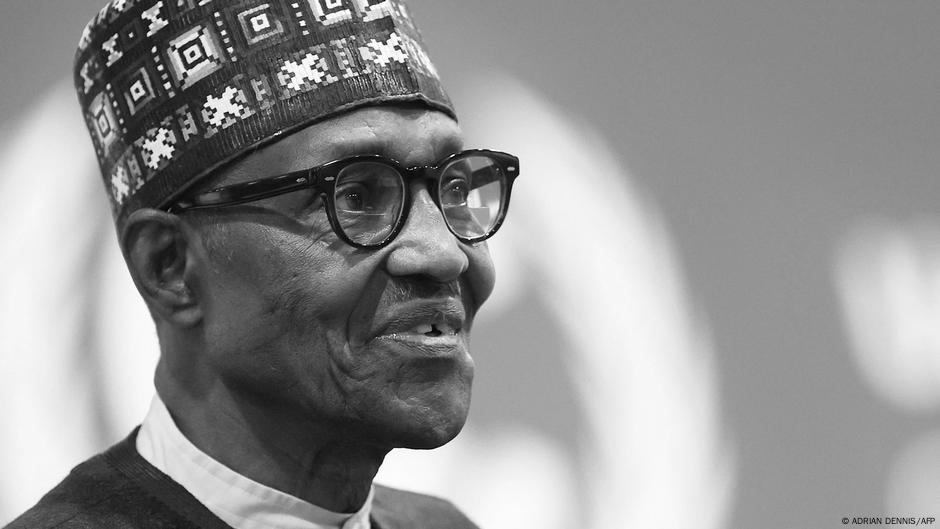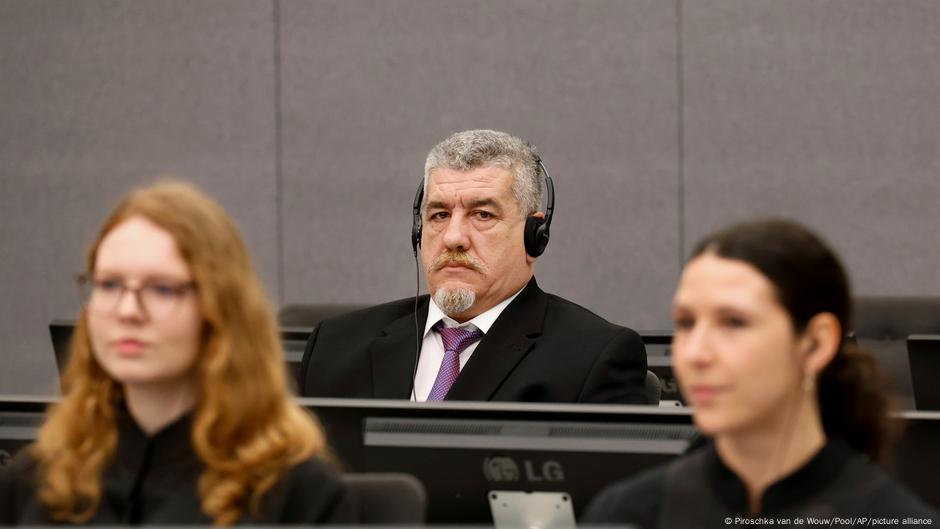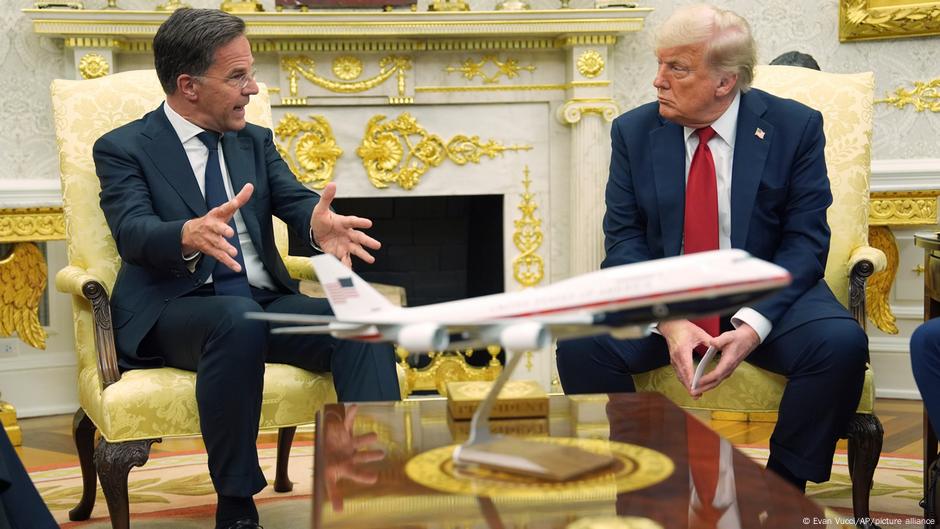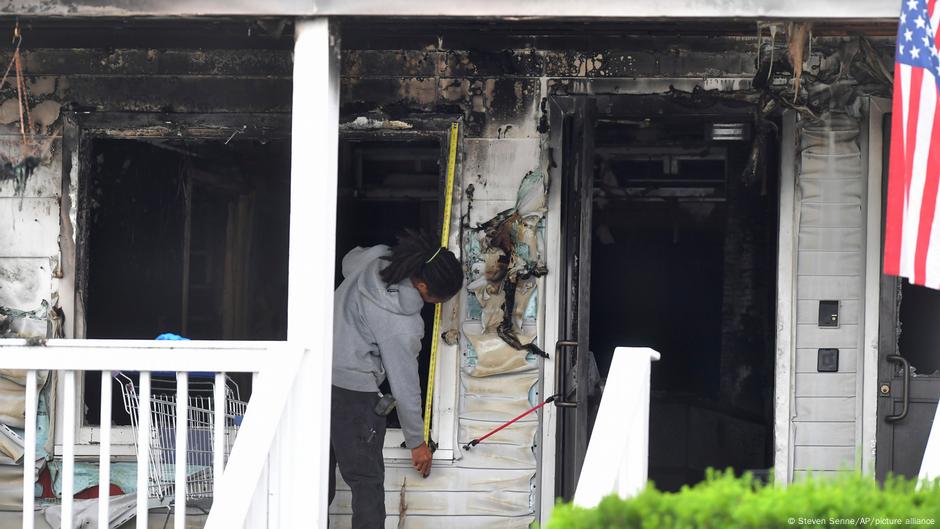The meeting between two top diplomats is especially noteworthy due to Rubio being officially sanctioned by Beijing.
Before he was tapped by President Donald Trump to become US secretary of state, Rubio had served in the US Senate, where he was a member of the Congressional-Executive Commission on China.
The commission is charged with monitoring human rights and the development of the rule of law in China, and submitting an annual report to the US president.
As a member of this body, Rubio sharply criticized the Chinese government for suppressing the democracy movement in Hong Kong, and for drastically restricting civil rights in the western province of Xinjiang.
Beijing lambasted what it saw as “interference in internal affairs” and placed Rubio on the sanctions list after the US government imposed punitive measures on Chinese politicians. The current US state secretary faced an entry ban and a freeze of any assets in China.
Intensifying US-China rivalry
Last Friday, the first face-to-face meeting between Rubio and Wang took place behind closed doors in Malaysia.
Neither side revealed much about what was discussed but Chinese state media later reported that the talks were “positive, pragmatic and constructive.”
At the Saturday press conference, Wang gave a brief summary of the conclusions made: Maintain contacts, avoid misjudgment, manage differences and expand cooperation.
However, he made no mention of whether Rubio would remain on Beijing’s sanctions list.
There is a “strong will” in both Washington and Beijing to organize a meeting between Trump and Chinese President Xi Jinping, Rubio said after the talks. No date has yet been agreed.
While the US still remains the sole global superpower, the gap with China is narrowing.
President Xi wants China to become a “strong, democratic, civilized, and harmonious socialist nation” by 2049, the centenary of the People’s Republic.
A study published by the consulting firm PricewaterhouseCoopers (PwC) at the start of 2025 projected that China would overtake the US and become the world’s top economy over the next three decades.
The US-China competition is already shaping the global economy and politics today, including trade wars, a global arms race and rising geopolitical tension.
EU caught between a rock and a hard place
The US is now using its economic might to force all economically weaker countries to compromise on trade. On Saturday, Trump announced a 30% tariff on all imports from the EU from August 1.
According to the DPA news agency, the decree will not apply to steel and aluminum. However, they are already subject to high tariffs. The US, for instance, imposes a 25% tariff on cars and car parts imported from the European Union and a 50% duty on steel and aluminum.
The president of the European Commission Ursula von der Leyen promptly responded, saying that she would take “all necessary steps” to protect EU interests.
At the same time, she said she is prepared to continue efforts to reach a mutually acceptable agreement with Washington. EU Trade Commissioner Maros Sefcovic was scheduled to hold talks with the US side on Monday.
German businesses have sounded the alarm amid the latest crisis.
The tariffs could damage “economic recovery and innovative strength,” said Wolfgang Niedermark, member of the executive board of the Federation of German Industries (BDI).
Confidence in international cooperation would also be affected, he added, noting that Germany, as an export-oriented nation, is just as dependent on free trade as China.
Can Europe keep up with the US, China in the high-tech race?
To view this video please enable JavaScript, and consider upgrading to a web browser that supports HTML5 video
Is US a partner or a rival of the EU?
Against this backdrop, the question arises as to whom the EU can rely upon — on the US, an old ally which is now throwing obstacles in the way of globalization, or on the communist party-led China, which is now seeking closer ties with Europe and Germany despite ideological differences.
Is a Trump-led US, like China, now seen seen as a “partner, competitor and rival” for Brussels? This is the question asked by China experts Paula Oliver Llorente and Miguel Otero-Iglesias in a new paper issued by Spanish think tank Elcano Royal Institute. The phrasing is borrowed from EU documents defining its relations with China, with the words also being included in the German government’s China strategy in 2023.
“Uncertainty has become the defining factor looming over the strategic positioning of the EU in the context of US-China rivalry,” the two scholars claim.
Berlin faces ‘historic challenges’ with Trump
“For Germany, Trump’s policies and the US-China conflict present historic challenges,” said Claudia Wessling and Bernhard Bartsch, China experts at the Berlin-based MERICS think tank.
They point out that the US administration under Donald Trump upended trans-Atlantic relations, shaking some long-held and deeply entrenched beliefs in Germany. At the same time, Germany also cooled its ties with China despite intensive trade and business links.
Just last week, Germany’s Foreign Office summoned China’s ambassador after Berlin accused a Chinese warship of aiming a laser at a German aircraft on patrol in the Red Sea. The German plane was deployed as part of an EU-led operation to protect commercial ships from the Houthi militia operating out of Yemen.
But China has disputed Germany’s allegations, saying it was “totally inconsistent with the facts known by the Chinese side.”
Urmărește cele mai importante știri
The Chinese Ministry of Defense said the Chinese frigate in question was not in the Red Sea but in the Gulf of Aden at the time.
European Union countries carry out missions to protect commercial ships in the Red SeaImage: ropean Union’s Operation Aspides/AP/picture alliance
If Germany manages to set aside all the differences with China and moves closer to Beijing, it would certainly anger Washington, which still binds together the European security architecture. Notably, Russia’s ongoing war against Ukraine has brought the importance of US military presence in Europe into sharp focus.
“Germany’s new government (…) now faces unprecedented pressure to navigate in a geopolitical world amid an ongoing polarization of society at home,” underlined Wessling and Bartsch.
That being said, the EU and the US have substantially different threat perceptions of China, said Llorente and Otero-Iglesias.
“The US is trying to fight a hegemonic competitor and an existential threat, while the EU is aiming to establish a balanced relation with a global player,” they argued.
Against this backdrop, the experts underlined, “the EU prefers to develop differentiated de-risking strategies to reduce critical dependencies in its economic relations with China.”
The German government’s China Strategy, unveiled in 2023, indeed emphasized “de-risking,” to reduce reliance on China.
Recent years have also seen many German firms investing not only in China, but also in the US.
However, many actors are now recognizing that these business strategies — such as further relocation to China and, increasingly, to the US — may ultimately run counter to the interests of the German economy, potentially leading to a crisis marked by declining exports and job losses, stressed Wessling und Bartsch.
“Thus, the slogan ‘derisking, but doing it right’ could prove to be a challenging mandate for the new German government.”
German carmakers struggle with looming US tariffs
To view this video please enable JavaScript, and consider upgrading to a web browser that supports HTML5 video
New start between Brussels and Beijing?
The EU-China summit will take place in Beijing at the end of July. Could this be a new start for Beijing and Brussels? The answer likely depends on Trump.
His administration has already specified tariffs on the EU and its most important Asian allies, saying Washington will demand a 25% levy on imports from Japan and South Korea from August 1.
The latest US plan for goods from China, however, has yet to be announced. If the trade war between the two escalates once again, China might try to use the EU market to absorb Chinese production overcapacity. In turn, the US could also redefine goods manufactured in the EU through Chinese direct investment as Chinese products and demand higher levies from EU businesses.
All EU states must act together to reduce their external dependencies, the Spanish experts said.
“Different Member States have different types of relations and dependencies with both the US and China, as well as individual interpretations of economic security and strategic autonomy,” they pointed out.
This “inherent heterogenous nature” of their trade ties leads to divergent foreign policy priorities, Llorente und Otero-Iglesias argued.
Nevertheless, “partnerships are indispensable for the EU,” they added. “China will have to, among other things, open its market to European businesses, and this needs concrete actions and not just promises.”
This article was originally written in German.
Send us your feedback
Sursa: DW
